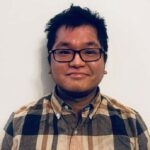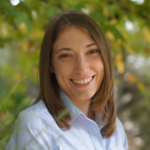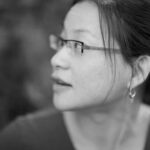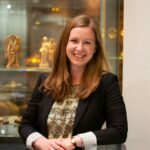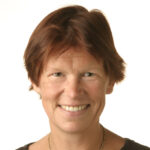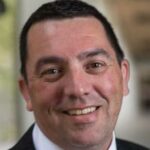Early Career Academic Fellows
Early Career Academic Fellows contribute to the life and work of University House in a variety of ways: by connecting with each other, with members of University House, and with resident postgraduates; by mentoring later-year Tuckwell Scholars; and by contributing to the governance of University and Graduate Houses. ECAFs are a friendly and enthusiastic group of early-career academics from across ANU. They have been appointed to support residents of University and Graduate Houses. The Fellows hold early-career academic appointments at ANU.
University House Early Career Academic Fellows 2024 – applications have closed
Find more details and link at the bottom of the page.
University House Early Career Academic Fellows 2024
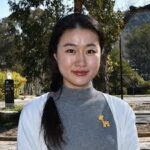
Research School of Physics, ANU College of Science
My work focuses on designing and developing undergraduate physics content and overseeing the delivery of the teaching programme to support and enhance the learning experience.
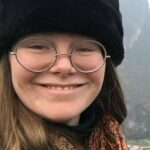
ANU College of Arts and Social Sciences
Dr Szuhan’s research interests lie broadly within and around the history of science, technology and medicine and modern transnational social and political history. Her current research investigates reproductive and contraceptive technologies, women’s health, fertility and infertility, the standardisation and regulation of medico-scientific technologies, drug refinement and development, the safety, efficacy and legitimacy of medical technology, and physicians’ perspectives on health and disease.
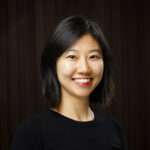
ANU College of Engineering, Computing and Cybernetics
After obtaining Bachelor’s degree in mathematics at the Korea Advanced Institute of Science and Technology (KAIST), Sungyeon moved to Switzerland to pursue her Masters’ degree in mathematics at the École polytechnique fédérale de Lausanne (EPFL). For her Master’s, Sungyeon analysed brain networks through the lens of topological data analysis (TDA), and she further honed the TDA skills in materials science through a research internship at the Korea Institute of Science and Technology (KIST). During her PhD in physics at ANU, Sungyeon focused on investigating the emergence of topological entities in two-dimension, accompanied by non-equilibrium dynamics, along a geometric quench process.
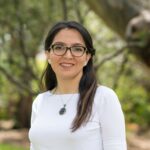
ANU College of Science
Dr Fateme Zare is a Research Fellow at the Institute for Water Futures and the Fenner School of Environment & Society. A transdisciplinary researcher, her expertise lies in complex systems, particularly focusing on water resources and integrated modelling. Dr Zare employs computational and participatory approaches to model socio-ecological systems, utilizing knowledge co-production methods to shape sustainability decisions in an uncertain future. She also designs her research methodology using a range of knowledge sources and quantitative and qualitative methods often from Decision-Making Under Deep Uncertainty, Multi-Sector Dynamics, System Dynamics, and Integrated Assessment Modelling

Julie Monro-Allison
Julie.Monro-Allison@anu.edu.au
ANU College of Arts and Social Sciences
Julie Monro-Allison works with weaving, crochet and other textile methods to make sculptural forms. She has held six solo exhibitions and participated in a number of curated group exhibitions, primarily in artist-run and community galleries including 146 ArtSpace, Blindside, Sawtooth, the Moonah Arts Centre and the Australian National Capital Artists Gallery. In 2019 she was a finalist in the Hidden Rookwood Sculpture Prize and the Woollahra Small Sculpture Prize, and in 2018 was highly commended in the School of Art and Design Drawing Prize. She has undertaken artist residencies with the Inner West Council, Kickstart Arts, Nillumbik Shire Council, Sturt Craft Centre, Vancouver Arts Centre, Craft Victoria and the former Marrickville Council.
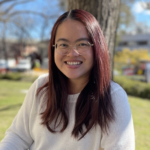
ANU College of Sciences
My primary research interests lie in structural seismology, specifically focusing on understanding the lithospheric structure and evolution of active arc-continent collisions along convergent plate boundaries (e.g. Indonesia) and the stable Cratons within the continents (e.g. Yilgarn Craton in West Australia and North China Craton). Both systems pose complexities that the classic modern-styple plate tectonics fails to satisfactorily explain. I am dedicating to addressing these outstanding tectonic challenges by not only developing novel seismic imaging method and integrating multiple seismological data (receiver functions, autocorrelations, surface wave data, and body wave data), but also by complementing them with a wide range of independent observations from geophysics, geology, geodynamics, geochemistry, and petrology.
I am a Postdoctoral Fellow at CPAS, working on an MRFF project entitled ‘Developing an Evidence–Based Model for Building Trust in Australian Stem Cell Research and Therapies’. I earned my PhD and MA (both in Geography) from Clark University, and a BA (Hons) in Environmental Studies and BSc in Genetics and Environmental Science, both from the University of Melbourne. In 2020-21, I was a Visiting Fellow in the Program on Science, Technology and Society at the Harvard Kennedy School. Prior to joining CPAS, I was a Research and Teaching Assistant at Monash University and the University of Melbourne in human geography and bioethics.
ANU College of Science
Rachael is an animal health, agriculture and public health researcher and educator. She is the Innovation Training and Education Lead at the Centre for Entrepreneurial Agri-Technology (CEAT) and convenes the Masters of Agricultural Innovation at the Fenner School of Environment and Society. At ANU we “teach ag differently” by working with industry to develop training and education programs to fill future needs gaps using cross-disciplinary approaches to address big challenges. Her research focuses on nutritional physiology of ruminants, mineral/vitamin metabolism, animal health and epidemiology. She is also interested in the intersection of human, animal and environmental health (one health) and agriculutre and climate change.
ANU College of Arts and Social Sciences
Medical anthropology; health and hygiene regimes; science and technology studies; cultural politics of food and eating; food safety and food-bourne illnesses; nutritional ideologies; cultural studies of the body and subjectivity; gender and sexuality; ageing and the elderly; institutional life; the study of the everyday; moral economies; the state and technologies of governance; mainland China and Hong Kong.
Georgia.Pike-Rowney@anu.edu.au
ANU College of Arts and Social Sciences
Dr Georgia Pike-Rowney is the Friends’ Lecturer and Curator of the ANU Classics Museum. Georgia is a researcher and practitioner focussing on the role of the arts in education and health and wellbeing, from a historical perspective as well as in current practice. Georgia completed a Bachelor of Arts majoring in Law and Classics at the Australian National University (2006), under the tutelage of Prof. Elizabeth Minchin (also previous Curator of the Classics Museum). This was followed by a Graduate Diploma in Secondary Education through Monash University (2009) majoring in History and Studies of Society and Environment
ANU College of Science
Research interests include – CO2 concentrating mechanisms in cyanobacteria and aquatic algae; Molecular physiology approaches to increasing photosynthetic efficiency and chloroplast function for yield improvement of C3 crops; Molecular mechanisms of photosynthesis and photoprotection using the unicellular alga Chlamydomonas reinhardtii as model system; Photoacclimation to light and shade environments in relation to roles of the xanthophyll cycles in avocado trees.
ANU College of Business and Economics
Andrew Hughes is a Lecturer in Marketing. His research explores the role of emotions and emotional responses in communications and marketing, the role of place and space in slow tourism, personal and experiential branding, and political and non-profit marketing. Examples include his exploration of the role of stakeholders in political marketing, personal brands in political marketing, the role of negative advertising in different contexts, and how digital and social media is being used in short political campaigns and movements. Andrew has published in Marketing Theory, and written a book on the role of digital and social media in political communications, Market Driven Political Advertising. He has also given numerous interviews on politics and political marketing to national and international television, radio, print and internet outlets and has provided election night commentary for the ABC and Channel 7.
